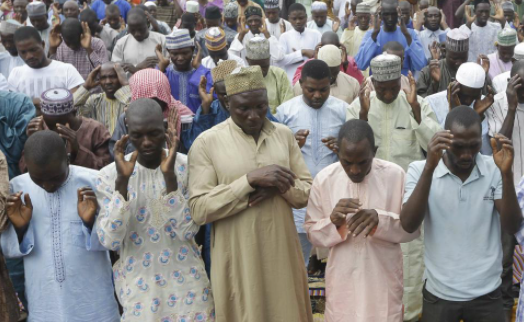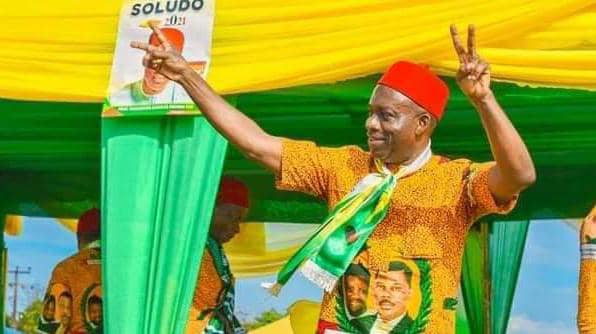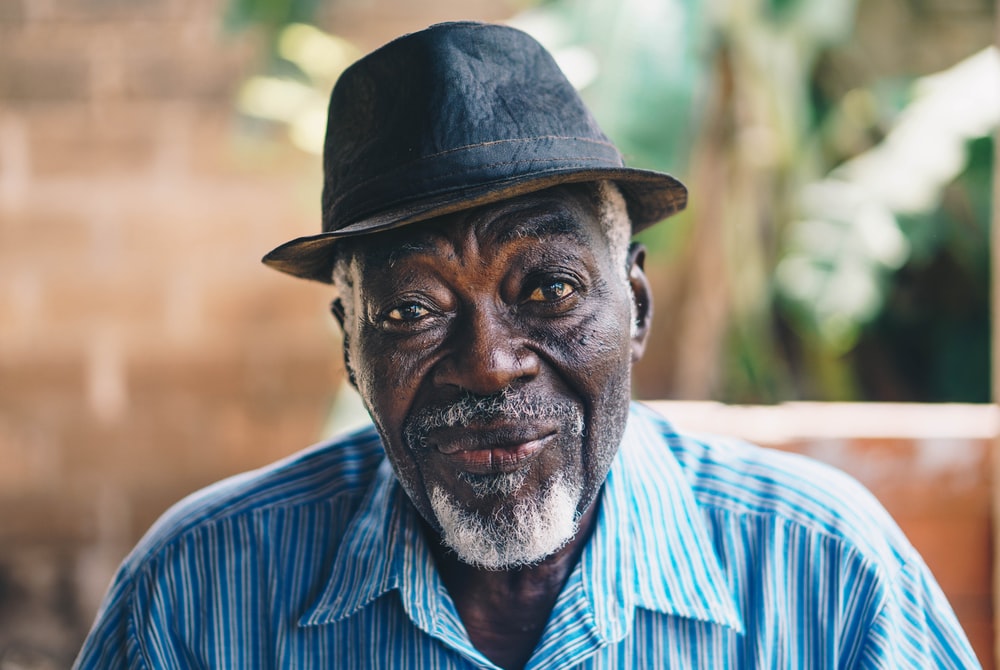When the news filtered in on November 1, 2021, that a building on Gerrard Road Ikoyi, belonging to a renowned property developer in Lagos, Femi Osibona, had collapsed, it sounded like every other story of “building collapse” in the past, that would be greeted with momentary grief, after which everyone moves on as if nothing happened. Hardly did people know that the calamity would also consume the property developer himself, and then trigger another baseless controversy.
As it is customary of us in Nigeria, especially on social media – an arena where a 100 level student of laboratory technology would argue jurisprudence with a professor of law. This calamity is no different. Everybody started claiming mastery of the art and science of structural engineering. Some did in all honesty, offer insightful submission as to the why, the how of the building collapse. Some people in our humane and religious (Nigerian) character, offered some comforting words, that could help soothe the pain occasioned by the loss of loved onese (about 4 dozen). As far as we are concerned in this clime, that is where it is expected to end, and we move on until the next calamity happens.
But that is not to be, as another vista of controversy, as I said earlier, was opened by an article, captioned, ‘Ikoyi tragedy and casual bigotry against Yoruba Muslims, written by an Atlanta-based university teacher and professor Farouk Kperogi, published in national newspapers, including Nigerian Tribune, People’s Gazette, his personal website, www.farooqkperogi.com, among others. The article is based on a YouTube interview, by a reported job-seeker, by the name, Adebowale Sikiru, a Muslim, who claimed late Femi Osibona denied him a job placement on the site, on account of him being a Muslim. Quoting Kperogi, below is an excerpt from his article: “Being invited for an interview by Femi Osibona, the MD of Fourscore (sic) Homes, the firm that managed the construction of the ill-fated multi-storey building.
After the interview, Sikiru said Osibona asked him what church he attended, and he responded that he was a Muslim. “Ah, I can’t work with a Muslim,” Sikiru quoted Osibona to have said. Osibona reportedly said in Yoruba that he couldn’t work with someone whose response to his chant of “Praise God!” would be “Alhamdulillah!”
Advertisement
When Sikiru told him of his struggles with getting gainfully employed after graduation, Osibona also reportedly said it was probably because of his Muslim faith that he was not “able to make a headway” in life. “He said that in front of even the bricklayers” and many others at the site,” Sikiru said.
One-sided as the above story appears, Kperogi did not give a hoot about giving it a seal of plausibility, saying and I quote; “Nonetheless, it doesn’t seem plausible that Sikiru, who didn’t even come across as a devout Muslim during his interview with AN24, would just wake up and invent the encounter with Osibona. Plus, videos that have emerged of Osibona’s meretriciously outward displays of his Christianity and evangelical exhibitionism are consistent with Sikiru’s account of his encounter with him”.
Come on Prof.! Whatever happened to the principle of balanced reportage, I don’t think, listening to the submission of an individual, whose character you ordinarily won’t vouch for, based on your virtual encounter, is enough to convict late Femi Osibona.
Advertisement
Kperogi did not only convict Osibona but also created his world of fantasy, painting the Yoruba nation as one divided group along the lines of religion as his caption suggests.
He did not stop at that; he wrote again: “I followed the social media conversations that Sikiru’s encounter with Osibona triggered among Yoruba Muslims and came away with the distinct impression that many Yoruba Muslims are seething with frustration and deep-seated inferiority complex on account of their faith-based systematic exclusion and demonization, but they are grinning and bearing their fate in smouldering silence out of social pressure, out of anxieties about social ostracism. We call this the spectacle of the spiral of silence in communication theory”.
This is nothing but a fallacy of hasty generalisation, for a supposed scholar, who thinks he could be based in the US and validly theorise about the sociology of inter-religious relationships among the Yorubas. He based the whole thing on his jaundiced “impression that many Yoruba Muslims are seething with frustration and deep-seated inferiority complex on account of their faith-based systematic exclusion and demonization, but they are grinning and bearing their fate in smouldering silence out of social pressure, out of anxieties about social ostracism”.
I am a Yoruba man and a Muslim. And in my over four decades of earthly existence, I have noticed that there is no religious bigotry against Muslims in Yorubaland, between adherents of the other dominant Abrahamic religion of Christianity. Let me show Kperogi and his ilk, where the bigotry lies and where he got it wrong:
Advertisement
By virtue of my vantage position as someone born and bred in the city of Ayetoro-Gbede, in Ijumu local government area of Kogi state, I think I’m eminently qualified to participate in the raging debate, stirred by Kperogi’s jaundiced position on the subject of discourse. Apart from being a Yoruba man, I have stayed long enough in the south-west and other Yoruba-speaking settlements outside the region. I have also interacted, both at formal and informal levels, with Yoruba Muslims and Christians in the region and those other places where I have dwelt. So permit me to offer my own modest contribution to Kperogi’s pool of data, that he could process so as to be able to arrive at a more valid conclusion on how the Yorubas (Muslims, Christians and adherents of the African traditional religions) interact among themselves.
For instance, in my (extended) family, the two religions are almost equally represented. Also, in my community and the entire Òkun land (the Yoruba speaking part of Kogi state); it is a mixture of Muslims and Christians.
Where the problem lies, that I want to draw his attention to, is that if you say you are a Muslim and you kill your “Sallah ram” and the meat fails to go round, get to your Christian cousins/neighbours, or you call yourself a Christian, and by omission or commission, your “Christmas rice” fails to make it to the dining tables of your Muslim cousins/neighbour, that is when you’d realise that “ẹnikan kí jẹ àwa de” (an individual does not respond, whenever a whole community summoned). That is when gossip about your perceived legendary stinginess would rent the entire town. You may even suffer some subtle sanctions like mild ostracism within the family and, or the entire community.
I could remember the list of Christian relatives and neighbours, whose rations of Sallah food and meat comes before ours who are even celebrating, based on my late father’s instruction. The same applies when it is time for Christmas and Easter festivals. Our Christian relatives/neighbours, in turn, never failed to reciprocate the gesture. That is the kind of problem I grew up to encounter in almost all the Yoruba settings I have found myself.
Advertisement
So tell me, where the room for malice/acrimony/bigotry between the two sub-groups lies.
In case the Kwara-born professor does not know, it is some sort of status symbol in Yoruba land, that as a Christian, you have Muslim friends who give you Sallah package during festive periods; ditto for a Muslim, eating “Christmas rice”, during Christmas in December.
Advertisement
It, therefore, sounded surreal to me, reading Prof, on Saturday, premising his assumption and conclusion on an isolated case, that even fails to offer us an opportunity to hear from the other party.
I am not saying there are no Yoruba Muslims and Christians who are trying to be more Egyptian than the Pharaoh, but they’re like a drop of water in an ocean.
Advertisement
I find it very strange, to say the least, that Prof. could come up with that position – that Yoruba Muslims are subjected to inferiority complex by their Christian brothers, and getting bullied into a heavily subsidised tolerance, despite the glaring dominance of Muslims among the political elite, a phenomenon the Christians have never complained about. For instance, Bola Ahmed Tinubu, Babatunde Raji Fashola, Ibikunle Amosun, deceased Abiola Ajimobi, Ogbeni Rauf Aregbesola, Gboyega Oyetola, Femi Gbajabiamila, Muiz Banire, Taofik Arapaja, etc, are all Muslims, yet they’re all loved by the people, not on account of their faiths.
In Ayetoro-Gbede where I hail from, it is a ratio of 7/3 between Christian/Muslim, yet as a Muslim I am neither aware of my fellow Muslims in the community nor myself, being subjected to such experience as the kind of bigotry, existing only in the mind of the author.
Advertisement
I, therefore, posit, without any fear of equivocation that the jaundiced impression that Yoruba Muslims suffer religious bigotry in the hands of their Christian kiths and kins, exists only, in the imagination of anyone who tries to push the narrative.
The only time I have ever experienced what looked like discrimination on account of my religion, was during my (NYSC) service year, in far away Calabar, Cross Rivers state, when I was floating as a corps member, looking for a place of primary assignment (PPA). Ironically, it was a Christian friend who knew me, down to my root, that tried to help. He referred me to a friend of his, who in turn referred me to the school where I met the cleric in question, along Margaret Ekpo Airport Road. I did not even see it as an act of bigotry because it would have been very difficult for me to function properly in that setting, were the clergyman to even try to be politically correct by offering me a slot to teach in that missionary school (I wouldn’t have fared any better, even if it were a Muslim missionary school), because as a ‘secular Muslim’ (like Ore Olugbenga – one of my Christian cousins, likes to describe me), I am a non-conformist. I like asking questions. So dogma is not for somebody like me.
Kperogi even took it to another ridiculous level, when he said, Yoruba Muslims hide their “Islamic names” in order to reassure their Christian kin of their “Yorubaness”. He referred to some prominent Yoruba political figures, writing that: “It is Yoruba Muslims who are required to downplay or hide their religious identity in the interest of an overarching Yoruba identity because, over the last few decades, Christianity has been rhetorically constituted in the popular imagination as a core constituent in the construction of Yoruba identity. That’s why prominent Yoruba Muslims almost always have to invoke their connection to Christianity to fit in”.
“The late Gani Fawehinmi always had a need to show that his wife was a Christian. Bola Ahmed Tinubu has a need to strategically let it be known that his wife isn’t only a Christian but a deacon. The house of representatives speaker Olufemi Hakeem Gbajabiamila concealed his Muslim identity until he needed the support of the Muslim north to become speaker. After the fact, his handlers played up the fact that his wife and his mother are Christians.
“Bola Ajibola, one of Africa’s finest jurists who happens to be a devout Muslim, doesn’t openly bear Abduljabar, his Muslim name — unlike his father who bore Abdulsalam as his first name — perhaps, not being married to a Christian, it was his only way to reassure his Christian Yoruba brothers and sisters that he is Yoruba”.
You can’t get it more ludicrous than that. I am Adebayo Abdullahi Abubakar. Many people know and address me as Adebayo or Bayour (Frenchified version of Bayo), while those who know me to be a Muslim, call me either of the first and the middle names. Some people even call me Abubakar – a name I loaned from my grandfather, and I answer them with glee. It is out of my volition to project whichever among those names. But to Kperogi, that right does not apply to Yoruba Muslims.
I think Pius Adesanmi, of blessed memory, did justice to this topic in one of his updates, a couple of years, before he transited to immortality. He explained the sociology of “religious harmony” in Isanlu, a microcosm of Òkun land, and by extension, Yorubaland.
So I do not think that the YouTube interview by the (Muslim) guy Kperogi relied on to reach his conclusion is a solid-enough ground to build such a gigantic theoretical castle, as it would crash before it even gets to half, the level at which the collapsed Ikoyi Fourscore building crumbled. It is a very weak theoretical scaffold.
It is also fraudulently clever of the guy to have come up with this when he knows Femi Osibona is no longer in the position to confirm or deny the allegation.
So to the Muslim and Christian Taliban who are already warming up, in readiness to feasting on the issue (Yoruba Muslims being subjected to inferiority complex by Yoruba Christians) is unfounded as far Yorubaland is concerned. Religious harmony, born out of mutual tolerance and love, is one of the strongest pillars that hold the Yoruba people.
Let everybody “Kulu Tempa”. It is not in our (we the Yoruba people) nature, to relate with ourselves or others, with religion as a major determining factor.
Adebayo Abubakar writes from Ilorin. You can reach him via 08051388285 or [email protected]
Views expressed by contributors are strictly personal and not of TheCable.
Add a comment







